Creator and creation. Father Dumitru Staniloae - Valuating the Areophageal Writings - Ionut Chircalan
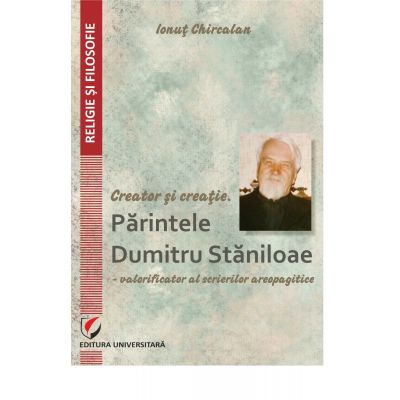
Alertă stoc
DESCRIERE
Much has been written about the Areopagite writings (their theology and philosophy) lately. Theses have even been prepared for obtaining the title of doctor, certainly in theology, but also in philosophy.
It is good that they also entered the order of interest of philosophers (historians of philosophy, even ethicists) first because, although with theological dominance, the Areopagite writings are also a repository of a great philosophy. In fact, for the Eastern branch of Christianity, according to the Apologies and Dialogue with the Jew Tryphon of St. Justin the Martyr and the Philosopher, the Areopagite writings are, perhaps, to a large extent, the foundation for Christian philosophy.
Second, alternative reading is a safe and straightforward path to dialogue. The inclination on the same text, from different situations, does not separate, by this, for the simple reason that one reading takes into account the dominance, and another from the "Second Game" of the work. Because this double settlement also enters the logic of the open work. Having a dominance: theological, philosophical, poetic, scientific, any book is of secondary interest for other readings-interpretations. Only from the space of the first Christian writings can the Areopagic Corpus, for example, be read, in its entirety, in the philosophical and ethical grid, and the beauty of language, its particularities, coming from the intense apophatism and from a grammar, I would say, of superlatives, make of he is also a monument of language and style.
Thus read, the Corpus is a guarantee of well-conducted dialogue through the very rule of the method, provoking and making it possible.
In our culture, translated and commented by Cicerone Iordachescu and Teofil Simensky, earlier, subtly and artistically evoked by Nichifor Crainic, they found in Father Staniloae an exeget (through a new interpretation) over time. Accompanied by the comments of Saint Maximus the Confessor or John of Scythopolis (if the former or the latter is the author), the edition of Father Staniloae brings something extra. But what individualizes it is the imprint of the translator, a theologian with an unmistakable personality.
Ionut Gh. Chircalan undertakes an extensive research of the Father's contribution, but not, I would say, as an end in itself. "The purpose of this thesis, warns the researcher, is to propose after the analysis a constructive model of interpretation of areophageal writings and some elements that contribute to the orthodox understanding of the reality and meaning of God's presence in creation for contemporary man."
We read for something: the next target is, no doubt, the application text, but the other, the final one, is its conversion into arguments for a new construction. We read intentionally, we read to think with the text on which we lean in another referential.
Introductory, with science and measure, the young researcher enters into the shackles of the identity of the author of the Corpus, in a way the "Homeric problem" in primary Christianity. He moves cautiously among many hypotheses, I do not say that they are unimportant, but not the biggest. After all, whoever was the author matters less; the main thing is that we have the work. Conversely, it would have been worse.
Besides, the great work, close to the upper part of the greatness, hides the author. Who wrote the Iliad and the Odyssey? Homer? There are doubts about Shakespeare, more towards us.
The presence of the Corpus in the epoch matters even less. Each historical time has its own grid of interpretation, so the text itself makes history. But, even introductory, it is not a problem without interest.
In cap. III of Part I, the controversies "on the Christian formation of Saint Dionysius" are investigated, taking into account his approach to philosophy, however, to tradition in Christian thought.
The first Christian writers were of Greek culture (Greek and Romanian, some); bringing philosophy into the Christian space did not desecrate the Christian idea, but integrated tradition into its body. In fact, something that St. Justin, Origen, and Clement had already done was, in a way, one of showing that the new religion is like a cultural crown. Elective assimilation, no doubt, is not distorted when it is well conducted. Therefore, perhaps, indeed the excess of philosophy will be led to heresies, but only the excess and insufficiency of critical supervision. And maybe weakening or weakening faith.
The Areopagite corpus was written at a time when in Athens post-ancient (surviving) Greek philosophy was dominated by Proclean Neoplatonism. If and how much the Corpus itself brings to the Neoplatonist, the discussion does not include the influence, but the problem, up to a point and in a certain direction, common. "Pagan" Neoplatonism (from Plotinus to Proclus) was not like a revival of doctrinal Platonism, but its organization around the great problem that brings metaphysics closer to theology: how do we think the transition from One to multiple (from being to existence) if not through division, nor through transformation into the self does it pass into creation.
The researcher is weighed in court, avoiding both uncritical acceptances and rejections as well. Although it seems to me, perhaps, too cautious. But the problem is thorny.
But all this is rather introductory. The strong part of the thesis begins with the second chapter (of the first part), but especially with the second part.
The author does not refer to Father Staniloae as an interpreter (translator and commentator) or not in the first place. In fact, Father Staniloae was too personal not to make a translation himself. The imprint of his theology is pressed, which does not spoil the originality of the text. Any translation, in fact, is the work of re-creation, which means bringing in the language and logic of time. Father Staniloae translated for our time.
In particular, in the reading of Father Staniloae, the Corpus reveals the intense personalism of Christianity, a dominant idea in the theology of the Father. In fact, if I realize correctly, this is the orderly idea of the thesis in its strongest part. In this way the thesis acquires organicity and at the same time shows the danger of a comment to comment. The thesis, therefore, is not only of exegesis, but also of systematic theology, as soon as the author discusses extensively the problem of personalism.
One last issue related to the translation of Father Dumitru Staniloae: with some "adventures", his translation could appear posthumously, which means that without reviewing its author. Perhaps Father Staniloae, very personally, brought the reference text too close to his own style. But can it be otherwise? Translation is not a simple transition from one language to another and is not a "betrayal" as is often repeated, unreflective, a fashionable word in the past. First interpretation, translation is an act of assimilation into another language, and another culture. It may or may not be well done. Traductio, passage, in Romani was also a word for the passage of the soldiers under the triumphal arch, but also under the caudal forks: ad traductionem nostra, says Seneca: to compromise - our shame.
If the translation of the Areopagic Corpus is pregnant in the Staniloae style, it is not a defect. It may be that the dissatisfaction of some comes from the fact that the text has been worked on before, the variant brought in the publishing house being the primary one. The caretaker of the edition, Constanta Costea, and knowledgeable of Greek and good Christian, could not change anything, except perhaps, in some places, to put accents. However, the young researcher is also balanced this time.
Academician Prof. Univ. Dr. Gheorghe Vladutescu
Categorii librarie online
-Edituri /Promotii
-Cărţi noi
-- 39,06 leiPRP: 42,00 lei (-7%)
- 73,00 lei
- 64,80 leiPRP: 72,00 lei (-10%)
Promoţii
-- 39,06 leiPRP: 42,00 lei (-7%)
- 29,30 leiPRP: 31,50 lei (-6,98%)
- 64,80 leiPRP: 72,00 lei (-10%)



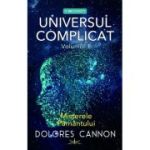
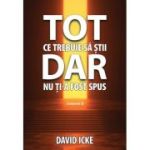
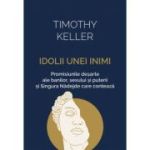
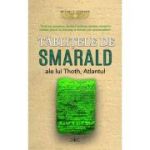
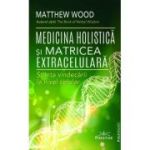
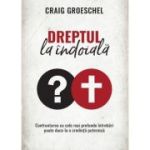
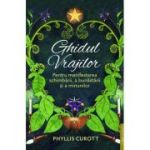

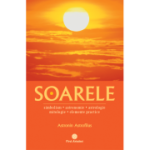


RECENZII